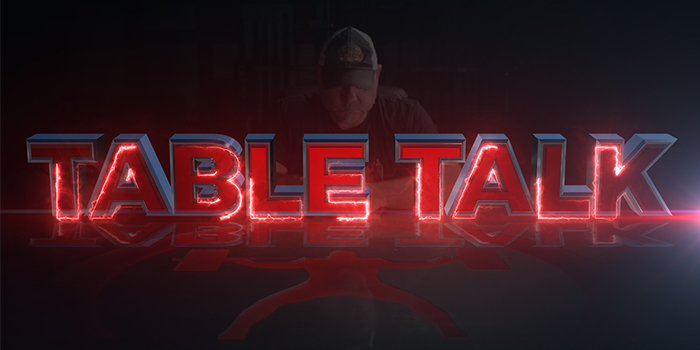
Powerlifting is not technically defined as a team sport. However, that does not mean that support from other lifters or coaches in the industry is not valuable. In fact, in most cases, serious powerlifters rely heavily on other people during their training programs, whether for coaching, guidance, or spotting them in the gym. It can also be more motivating to train in a group, which often increases accountability amongst members. The reality may be, however, that some individuals lack a real training community; some may just prefer to go it alone. As such, Dave Tate sat down to address the following question:
What tips would you have for someone training by themselves?
Tate starts out by mentioning that from a bodybuilding standpoint, training alone may actually have some legitimate benefits. It means you can move through the gym at a quicker pace; you don’t have to constantly be stopping and waiting for equipment, or for other people. When it comes to strength athletes or powerlifters, however, it’s a different story.
Training alone in the sport of powerlifting is not impossible – Tate, in fact, admits that he knows several top lifters who prefer to train on their own. Yet, he is skeptical, and primarily for safety reasons. Without another person to spot you or simply look out for you in the gym, lone lifters must ensure that they are taking every precaution necessary to create a safe training environment for themselves. Not only does this mean spot pins and safety straps, it also means a general increase in care and attention when lifting anything even moderately heavy. Without a spotter, you can’t bail on the bar when squatting, and you won’t have support if the bar slips when bench pressing either. Needless to say, accidents do happen – and these injuries can be serious.
Although lifters might think that they’ve got everything under control, Tate states that the majority of the injuries that he’s witnessed in the gym have occurred with sub-maximal weights. Contrary to popular belief, it’s not the super-heavy lifts that cause most of the problems – rather, it’s the weights that are minimal to the point that lifters think that they don’t even need a spotter. Tate can’t stress enough that safety is the first priority in any training session, but particularly if you find yourself training solo:
If you train alone, that’s my number one recommendation: make sure that you have safety set-up for it. There’s no excuse not to – none.










